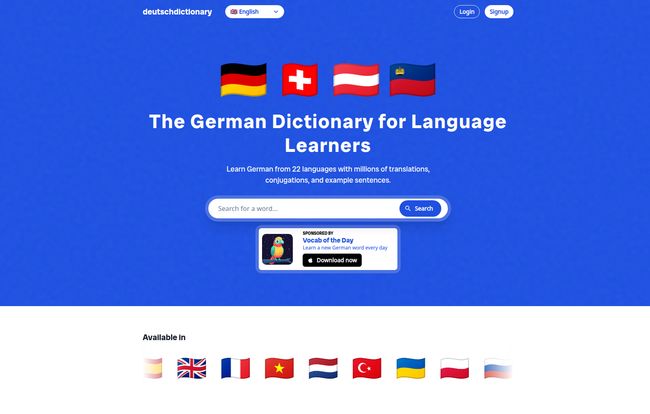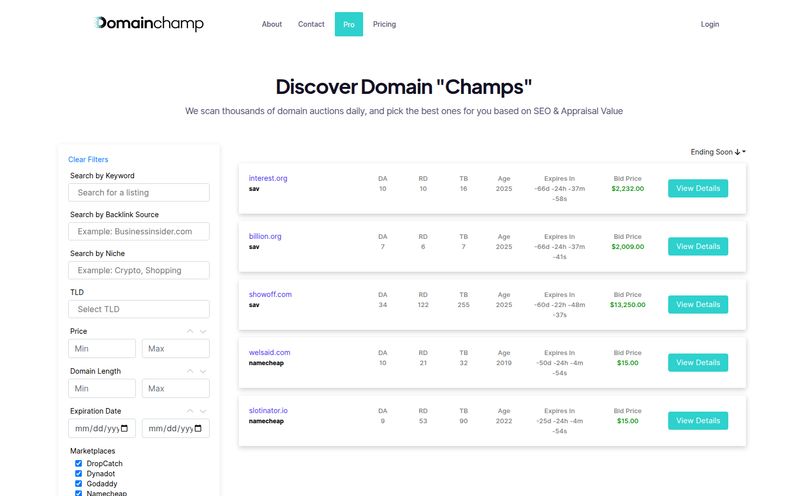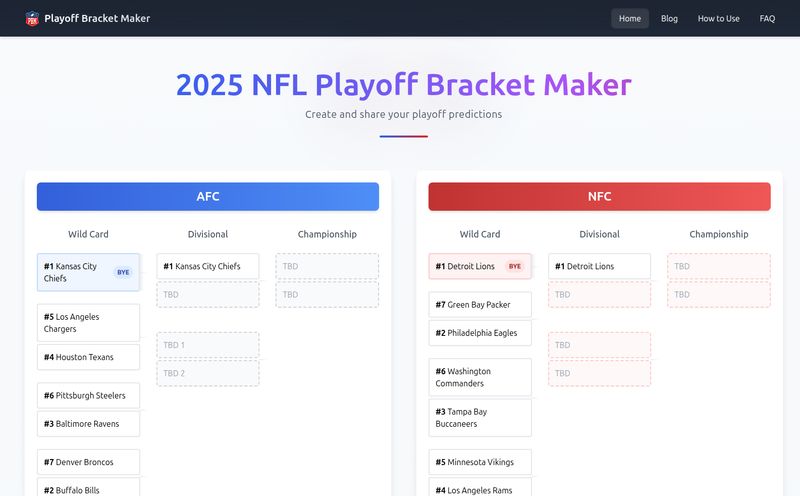Alright, let’s have a real chat. If you’ve ever tried to learn German, you know the feeling. You’re staring at a word like Streichholzschächtelchen, and your brain just… shuts down. For years, our go-to tools were clunky online dictionaries that looked like they were designed in 1998, or we’d lug around a paperback book that weighed more than a bag of potatoes.
Then came the flood of AI tools. Every week, there’s a new app or platform promising to make language learning effortless. Honestly? I’m usually pretty skeptical. Most are just fancy wrappers for the same old tech. So when I stumbled upon DeutschDictionary.com, my first thought was, “Here we go again.” But I’ve got to admit, this one caught my eye. It claimed to be an AI-powered dictionary specifically for German learners. And it’s free.
So, I rolled up my sleeves and spent some quality time with it. Is it just another piece of digital noise, or is it a genuinely useful tool for folks trying to master die deutsche Sprache? Let’s get into it.
So, What is DeutschDictionary Anyway?
At its core, DeutschDictionary is a German-English dictionary. Simple enough. But the 'for language learners' part is what matters. It's not just about giving you a one-word translation. The site is built around the idea of providing context. We’re talking over a million translations, powered by an AI that’s constantly being updated with new words, slang, and examples. Think of it less like a dusty old book and more like a living, breathing language resource. It’s designed to show you how words are actually used, not just what they mean in a vacuum.

Visit DeutschDictionary
The homepage is clean, modern, and gets straight to the point. No fluff. Just a big search bar, which as a user, I appreciate. It shows they respect your time.
My First Impressions and What I Liked
When you spend as much time online as I do, you develop a sixth sense for bad websites. You know the ones—cluttered, slow, ads popping up everywhere. DeutschDictionary is the opposite. The interface is refreshingly simple. It’s fast. The 'Word of the Day' feature, showing 'aussehen' (to look, appear) on my first visit, was a nice touch. It immediately felt like a learning environment, not just a sterile utility.
It’s clear this wasn’t just thrown together over a weekend. It feels intentional. You can tell they’ve thought about the learner's path, from basic lookups to more complex grammar points. They even have a blog with posts like 'How Long Does It Take to Learn German?'—classic SEO play, but also genuinely helpful for a beginner. Respect.
Digging into The Main Features
A pretty interface is nice, but it's the engine under the hood that counts. Here’s a breakdown of what DeutschDictionary offers.
More Than Just a Word Swap: Translations in Context
This is the big one for me. Anyone who's learned a language knows that a direct translation can be your worst enemy. The classic example is the German word Gift. In German, it means 'poison'. In English, it means 'present'. You do NOT want to get those two mixed up at a birthday party. DeutschDictionary helps you avoid these pitfalls by providing multiple example sentences. You don’t just see the word; you see it in a relationship with other words, in a real-world context. This is so much more valuable for retention than just memorizing a vocabulary list.
Taming the Beast of German Verbs: Conjugations
Ah, verb conjugations. The bane of every German student's existence. Ich gehe, du gehst, er/sie/es geht… It's a mountain of memorization. Having a dedicated conjugation tool built right in is a massive time-saver. Instead of opening another tab to search for “conjugation of sprechen,” you can do it all in one place. It’s a small thing, but these little efficiencies add up and reduce the friction of studying.
Sounding Less Like a Robot: Audio Pronunciation
You can read German perfectly, but if you can't pronounce it, you're only halfway there. Hearing a word spoken by a native speaker is critical. The umlauts (ä, ö, ü) and that tricky 'ch' sound can be a real struggle for English speakers. The audio pronunciations on the site are clear and correct. It’s a feature every modern language tool should have, and I'm glad they didn't skip it.
The AI Elephant in the Room
Let's talk about the AI. It's the platform's main selling point and also its potential Achilles' heel. On one hand, the AI is what keeps the dictionary fresh. Languages evolve. New words pop up, old ones fall out of favor. An AI can scan a huge amount of text—news articles, blogs, forums—to keep the translations and examples current. A printed dictionary is outdated the moment it's published. This is a huge advantage.
However, and this is a big 'however', AI is not human. It doesn't understand sarcasm, irony, or deep cultural nuance. I've seen AIs from huge tech companies make hilarious and sometimes embarrassing translation mistakes. While DeutschDictionary seems pretty solid for common usage, I would still be cautious if I were translating a legal document or a complex piece of poetry. For a language learner finding their footing? It’s fantastic. For a professional translator? It’s a good starting point, but you still need your human brain to do the final check.
Who Is This Tool Really For?
I think DeutschDictionary has a very clear sweet spot. If you’re a beginner to intermediate German learner, a high school or college student, or just someone learning for fun, this tool is practically made for you. It’s an amazing daily companion for homework, reading German websites, or looking up a word you heard in a movie.
Who should maybe look elsewhere? If you’re an advanced academic studying 18th-century German literature or a professional translator where every single word has legal weight, you’ll probably need more specialized, human-curated resources. But that's not a knock on DeutschDictionary; it's just about using the right tool for the job. And for 95% of learners, this is the right tool.
Okay, But What's The Catch? The Price.
This is the part where I usually brace for impact. I search around for the pricing page, expecting a subscription model or a 'freemium' plan with the best features locked away. But with DeutschDictionary… there isn’t one.
It’s free.
Completely. No hidden costs, no premium tier. In a world where everyone wants a piece of your wallet for their subscription service, this is incredibly refreshing. It lowers the barrier to entry for learning a language, and that's something I can really get behind.
The Good and The Not-So-Good
So let's boil it all down. What I absolutely loved was the clean design, the focus on example sentences, and of course, the price tag. Its a powerful, modern tool that costs nothing. A no-brainer.
But it's not perfect. The reliance on AI means you should always approach it with a healthy dose of critical thinking. Don't just blindly trust every translation for super nuanced or idiomatic phrases. It’s an assistant, a very very good assistant, but its still an assistant.
Frequently Asked Questions
- Is DeutschDictionary really free to use?
- Yes, based on my review and the website itself, DeutschDictionary is completely free. There are no subscription fees or hidden charges mentioned.
- How accurate are the AI translations?
- For general purposes and everyday language, the translations are quite accurate and very helpful, especially with the example sentences. However, as with any AI, there's a small chance of error with very nuanced, idiomatic, or technical language. It’s best used as a learning guide.
- Can DeutschDictionary help me with German grammar?
- Yes, in a way. The built-in verb conjugation tool is a massive help for one of the trickiest parts of German grammar. Seeing words used in sentences also helps you passively absorb sentence structure.
- What languages does DeutschDictionary support?
- The primary function is German-English. However, the interface and translations are available in multiple languages, including French, Spanish, Turkish, and Vietnamese, making it accessible to a wider range of learners.
- Is this better than Google Translate for learning German?
- In my opinion, for a learner, yes. Google Translate is a pure translation machine. DeutschDictionary is a learning tool. The focus on conjugations, example sentences, and a learner-centric design gives it an edge for someone actively trying to study the language, not just get a quick translation.
My Final Verdict on DeutschDictionary
So, what's the final word? I went in a skeptic and came out a fan. DeutschDictionary is a seriously impressive tool that punches well above its weight class—especially considering its weight is zero dollars. It’s a powerful, modern, and user-friendly dictionary that feels perfectly built for the modern language learner.
It's not going to make you fluent overnight, and you should still double-check its work on occasion. But as a daily driver for your German learning adventure? It has my wholehearted recommendation. It’s a brilliant example of how AI, when applied thoughtfully, can create genuine value and make the difficult process of learning a new language just a little bit easier. Give it a try; you've got nothing to lose.



